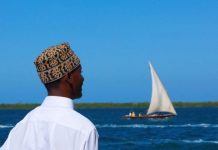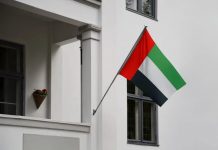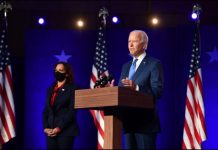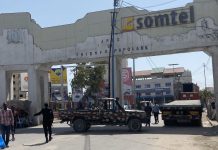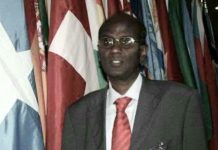
Bilateral ties between Turkey and Somalia will be further cemented, as Ankara is fully committed to do whatever is necessary to establish stability in Somalia, Prime Minister Binali Yıldırım asserted yesterday following a meeting with Somali Prime Minister Hassan Ali Khaire in Ankara.
“Somalia informed us regarding the steps that will be taken in security, infrastructure matters, which are crucial for Somalia’s future,” Yıldırım said during a press conference held after the two leaders’ meeting in Ankara.
The prime minister added that the two countries should develop a model on the basis of “strategic partnership,” emphasizing the importance of strengthening bilateral relations. “Our aim is to see a self-sufficient Somalia, a country that take its deserved place among the international community. Last February, the new government took power through peaceful elections, which denotes a maturity of democracy in the country,” he said.
Yıldırım also emphasized the need for an environment of “peace and brotherhood” in order to fully establish stability within the country, adding that Turkey is ready to do whatever necessary. “Without a doubt, an international military presence cannot permanently sustain peace. On one hand, Turkey builds up solidarity with Somalia and on the other, it supports social responsibility and humanitarian aid projects with nongovernmental organizations (NGOs),” he said.
Speaking to Anadolu Agency (AA), export on South African affairs Eddy Malok praised Turkey’s involvement in Africa, saying the partnership is based on priorities and ideas from the continent itself, not ones from outside.
“What is good about the Turkey-African partnership is that […] it is based on African priorities and it is not imposed. [The partnership] is based on mutual respect and a win-win situation for both sides,” said Maloka, who has decades of experience both as an academic and as an adviser to South African governments. He also thanked Turkey for promoting investments in Africa, saying: “It is a very good model and we want to encourage other countries in the world to emulate this model.”
He added that like Somalia, countries such as Burundi, Sierra Leone and the Central African Republic also need help. “These are the countries that require a lot of support which I am confident that Turkey is able to provide,” Maloka said.
Turkey’s vast efforts in providing aid at the height of the 2011 famine endeared it to many Somali people, and it has continued to bring aid to the country, much of it from private companies.
President Recep Tayyip Erdoğan has visited Mogadishu twice and during his first trip there in 2011, he became the first non-African leader to visit the war-ravaged nation in 20 years.
After this meeting, Turkey geared up in the area of development projects, preparing an aid package totaling $500 million dollars at President Erdoğan’s request, in order to carry Somalia to a self-sustained condition.
Since then, Turkey’s state-run Red Crescent and the Disaster and Emergency Management Authority (AFAD), as well as other NGOs, have launched a massive aid and development campaign.
The projects included in the scope of the campaign include building schools, hospitals and infrastructure, as well as providing scholarships for Somalis to study in Turkey. Other projects include garbage collection, road construction, waste water reclamation and debris removal, for the rehabilitation of the people of Somalia and reconstruction of the cities.
The Somalian-Turkish Research Hospital, opened in 2015 by President Erdoğan in Mogadishu, was another example of Ankara’s long-term, permanent projects for maintaining stability in the country.
The 230-bed hospital provides training for prospective Somalian healthcare personnel and was built to serve 2 million people living in Mogadishu and towns near the capital, offering services to 6,000 people per monthly average and conducting roughly 100 surgeries.
Rapid growth in trade volume between the two nations has also followed the developments. In 2010, Turkish exports to Somalia totaled just $5.1 million. However, by last year this figure ballooned to $123 million. In the duration of six years, Turkey has gone from Somalia’s 20th-largest source of imports to its fifth-largest.
urkey also opened its biggest overseas military training base in the Somali capital of Mogadishu in September, cementing its ties with the volatile but strategic nation and building a presence in east Africa. The academy was inaugurated by Turkey’s Chief of General Staff Gen. Hulusi Akar and Somali Prime Minister Khaire in a ceremony held at the training facility where more than 10,000 Somali soldiers will be trained by Turkish officers.
Somalia has long been struggling against al-Shabaab militants, which recently carried out a terror attack and caused death of more than 300 people. After the attack, 35 injured Somalis, including three children, arrived for medical treatment in the Turkish capital of Ankara.
Despite militants having been driven out of Mogadishu in 2010, their deadly attacks remain one of the main obstacles to stability in the Horn of Africa country, which lies along one of the world’s busiest shipping routes.
Despite the U.N. having collected $55 billion dollars for Somalia between 1991 and 2011, noteworthy infrastructure projects were not carried out.







